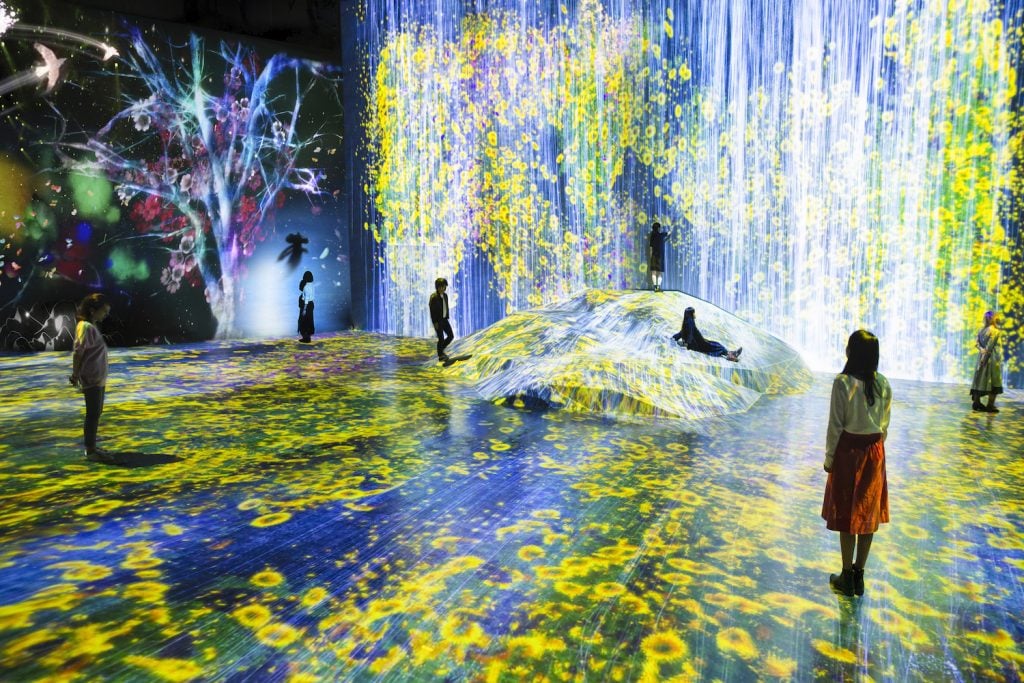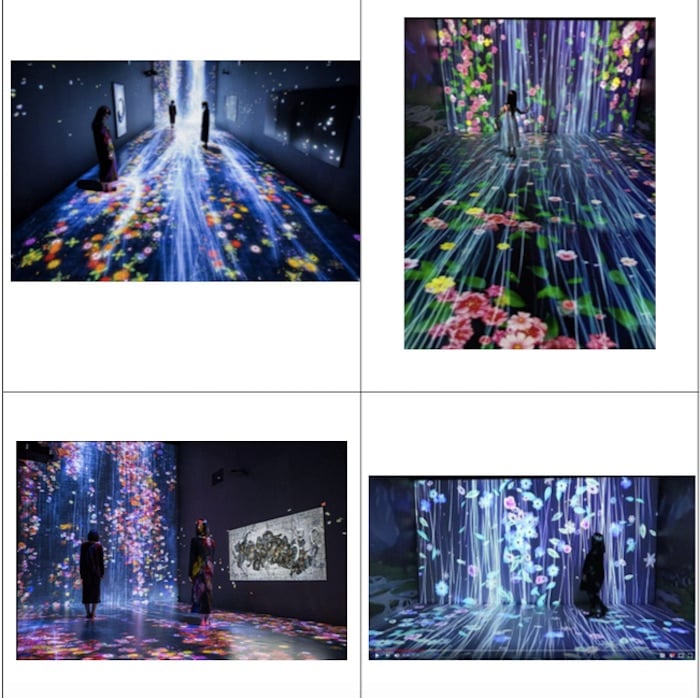Law & Politics
TeamLab Is Suing a Los Angeles Museum for Allegedly Copying Its Instagram-Friendly Light Installations for Its Own Display
Immersive art is big business. Now, it has the legal bills to prove it.

Immersive art is big business. Now, it has the legal bills to prove it.

Eileen Kinsella

When teamLab—the Japanese art collective known for creating 360-degree interactive software environments—opened a museum in Tokyo in 2018, it drew more visitors during its first year than the Van Gogh Museum in Amsterdam.
But popularity can be a double-edged sword. The success of teamLab’s installations and other Instagram-friendly offerings like Yayoi Kusama’s “Infinity Mirrored Rooms” and the Color Factory have inspired droves of imitators.
Now, teamLab claims one museum in Los Angeles, the Museum of Dream Space (MODS), has gone too far, violating its copyright and fooling consumers into thinking it is associated with the Japanese collective.
For the past two years, teamLab has been waging a quiet legal battle against the museum, founded by the U.S. subsidiary of a Beijing tech company called Dahooo that also produces light shows, 3D maps, and installations for shopping malls.
Attorneys for teamLab and MODS declined to comment on the proceedings. But in court documents, the Los Angeles company claims that teamLab has failed to make a convincing case that its interactive digital installations can be copyrighted at all.
In the coming months, decisions are likely to set key precedents in the realm of intellectual property law—and the big business of immersive art.
TeamLab, which was established in 2001 and is now represented by mega-gallery Pace, said fans alerted them to uncanny similarities between their installations soon after MODS launched in 2018. Admission to MODS is $32.50; tickets to teamLab’s museum in Tokyo are just over $25.
MODS now operates locations in Beverly Hills, Los Vegas, and Hollywood. In 2020, Justin Bieber filmed the music video for his song “Intentions” at the L.A. attraction. (Bieber’s team took the video offline after being contacted by teamLab’s lawyers about the ongoing lawsuit.)

Side-by-side images of teamLab’s Boundaries on the left and MODS’s Season Dream on the right. Image via Pacer
TeamLab zeroed in on two of its own works that it says bear remarkable similarities to those on view at MODS: Boundaries (2017), first displayed at Pace London, and Crystal (2015).
TeamLab argues MODS’s works appropriate its own “protectable expression,” including: “the use of multicolored flowers flowing across the ground, the streams of light/water cascading down the wall and onto the ground, and the interactivity of the work responding to the user’s proximity to the exhibit. Both works also contain artwork flanking either side of the waterfall giving off the appearance of outer space or stars.”
MODS acknowledged that it had posted images of teamLab installations to its own social media accounts, but denied it intended to defraud or confuse consumers.
The Japanese art collective earned an incremental victory last month when a court agreed with its claim that messages between Dahooo CEO Charles Chang and social media consultants charged with posting the teamLab images had been inappropriately destroyed. Representatives for Dahooo contend that the messages on platforms including Telegram and WeChat either self-destructed or were erased after certain employees left their positions.
In new filings made this week, MODS came out swinging. The museum contended that teamLab has no copyright registrations in the United States and therefore has no grounds to sue.
Plus, it claimed, even if teamLab had registered its copyright, the elements alleged to have been copied are “either not original to teamLab, not protectable, or both.” (TeamLab, a Japanese company, says that it is entitled to sue in the U.S. because both countries are party to the same international convention that protects the copyright of artworks.)
MODS also raised the question of whether an ever-changing work of art can be fixed enough to be copyrightable at all. TeamLab’s Boundaries, MODS said, has “a significant interactive aspect that changes the work every time a viewer walks through it,” rendering it “ever transforming.” Plus, the museum claimed, plenty of artists use mirrors and LED lights to create installations, including Yayoi Kusama, who is referenced as an inspiration on the MODS website, as well as Erwin Redl.
This isn’t the first time teamLab has sued to enforce its copyright. In December, the collective won a case against a Chinese company that used the teamLab name to promote an immersive art installation.
Both MODS and teamLab petitioned the court for summary judgment in early April, with supporting filings made on April 25. A hearing on those requests is scheduled for June 10. If no judgement is made and the parties fail to settle, the case will go to trial in August.